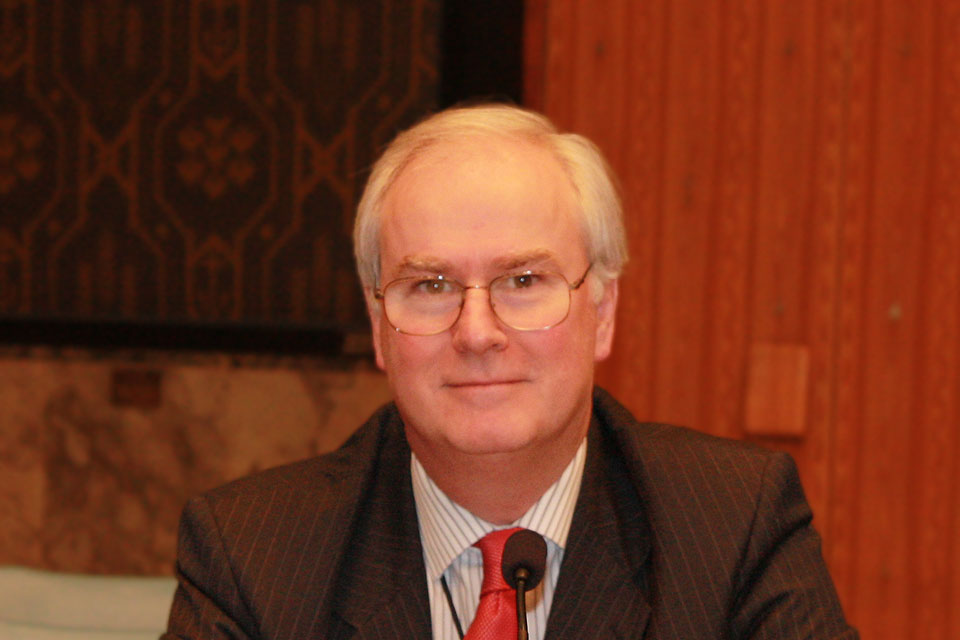We must look for new and innovative ways to increase effectiveness of resolution 1540
UK Statement by Ambassador Lyall Grant of the UK Mission to the UN, to the Security Council Open Debate on Non-Proliferation of Weapons of Mass Destruction – Commemorating the 10th Anniversary of Resolution 1540

Thank you Mr President.
Foreign Minister Yun, I welcome you to the Security Council today and I thank the Republic of Korea Mission for organising this important debate and for its Korean leadership of the 1540 Committee as we work together towards the Comprehensive Review of implementation of the resolution in 2016. And I thank the Deputy Secretary-General for his introductory statement.
Mr President,
Ten years ago we adopted Resolution 1540. Since that day non-state actors have not acquired weapons of mass destruction, indicating that the resolution has been effective. But we cannot rest on this as a measure of our success. We know that terrorist groups want and intend to obtain weapons of mass destruction. As Thomas Jefferson said, “the price of liberty is eternal vigilance”.
That is why states must continue to implement Resolution 1540 with the same vigour and commitment as when we first adopted the resolution. Universal compliance with Resolution 1540 is an essential component of the international non-proliferation response. The United Kingdom therefore strongly supports the United Nations 1540 Committee and its work to achieve full implementation of the Resolution. We will continue to do our part.
In December 2013, the United Kingdom submitted our Fourth National Implementation Report and our first National Action Plan to the 1540 Committee. Under our 2013 Presidency of the Global Partnership against the Spread of Weapons and Materials of Mass Destruction, we hosted an outreach event for non-reporting states involving two of the 1540 Committee experts; some of the states attending have since submitted their first reports.
The United Kingdom also supports UNODC in its work with a number of states. Through our Counter Proliferation Strategic Programme Fund, we have hosted outreach and awareness raising workshops to help states develop domestic legislation that meets Resolution 1540 requirements. This fund has also enabled us to collaborate with Canada and Indonesia to produce a Nuclear Security National Legislation Implementation Kit. We hope that other states find this kit useful in ensuring their domestic legislation is in line with the requirements of Resolution 1540.
Mr President,
The value of the 1540 Committee’s Group of Experts cannot be underestimated. In addition to performing the vital role of collating requests and offers of assistance, the 1540 Committee and its Experts conduct country-specific visits to grasp the challenges of national implementation and to guide states towards sources of assistance. This direct engagement has increased the number of reporting states. I encourage Member States to take the initiative in re-assessing their compliance with the Resolution, for example through greater use of peer-to-peer review. I also encourage the Committee to work with a range of actors, including industry, civil society, academia and the private sector to support states in their implementation of the resolution.
Mr President,
Much has been achieved in the last ten years: 172 states have submitted their national reports on the implementation of the resolution voluntarily and the number of non-reporting countries continues to decrease. I take this opportunity to urge the twenty one states yet to submit National Implementation Reports to the 1540 Committee to do so as soon as practical. Seventeen of these twenty one states are in Africa. The reports are not as onerous as states may fear and assistance is available in preparing them, including from the Panel of Experts and from regional partners.
As we enter the second decade of this resolution, we must look for new and innovative ways to increase effective practices to support the resolution and to ensure that non-state actors never acquire weapons of mass destruction.
I thank you.